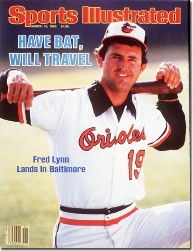Something funny goes on in Major League Baseball along this time of the summer. As the calendar charges forward to the end of July, the 30 teams get funneled into two categories. And we stop talking about them as baseball teams and start referring to them in Wall Street terms.
Buyers? Sellers?
The deadline for consummating trades between teams without players having to pass thru waivers is July 31. Once the clock strikes
The Tigers have been “buyers” the last two seasons – meaning they have something to play for in August and September, and thus are looking to add to their roster. The have-nots – aka the “sellers” – can get into fire sale mode, wanting to peddle as many players (read: contracts) as they can, usually to acquire prospects. And when the buyers and sellers get together on or around July 31, the rumble can be seismic.
But this season, there seems to be some question as to whether the Tigers should consider themselves buyers. Yet, they would appear not to be sellers, either – not with their cache of huge contracts and the recent purging of their farm system. But in baseball when it comes to the trading deadline, you’re either a buyer or a seller. Nothing in between. So let’s call them buyers.
Jim Campbell, the crusty general manager of the Tigers from the early-1960s to the early-1980s, sort of made it his habit to secure latecomers for his manager, trying to give Chuck Dressen or Mayo Smith or Billy Martin or Sparky Anderson those extra horses needed to nip the pack. And as what happens when you are a “buyer”, you must beware. Sometimes those horses come up lame.
Not so in 1972.
Martin was at the helm in
Martin’s tenure in
As four teams jockeyed back and forth for the divisional lead – the Tigers, Red Sox, Yankees, and Orioles –
From
Fryman was sensational, going 10-3 down the stretch for the Tigers. Sims provided clutch hits and batted over .300 after the trade. And Howard, who didn’t join the team until mid-September, hit a couple home runs and became the team’s no. 1 cheerleader. All that was left was for Martin to push the right buttons – and he did so, including those of his players, on occasion. The Tigers won the East by a half-game over the Red Sox, then fell, 3-to-2, to the Oakland A’s in the ALCS.
In 1988, Bill Lajoie tried to supply Sparky with some of those extra horses. And it involved some manic air travel.
On August 31 – the last day players can be acquired and still be eligible for a playoff roster – Lajoie worked out one of those waiver deals with the Baltimore Orioles. Coming to the Tigers would be 36-year-old outfielder Fred Lynn – a bona fide All-Star in his heyday. Only, this wasn’t his heyday – hence him clearing waivers.
Anyhow, Lajoie makes the trade, but according to MLB rules,

This SI cover's headline had even more meaning when the Tigers dealt for Lynn in 1988
In 1993, Jerry Walker is the Tigers GM and he pries another one-time superstar past his prime, outfielder Eric Davis, from the Dodgers on trade deadline day.
Two summers ago, the Tigers rescued Sean Casey from the Pirates. In the World Series, Casey was easily the Tigers’ best hitter, going 9-for-17 with a couple of homers. Last season, the Tigers – although considered buyers by most – stood pat, satisfied with their horses. But too many of them came up lame, and before you knew it, the Tigers were done – shoved ingloriously out of playoff contention by the Indians and Yankees.
This year, the Tigers are fiddling around with .500 and they’re on the cusp of being sellers, but they probably consider themselves buyers, if they’re wearing their rose-colored glasses. Trouble is, glasses or not, one thing never changes.
Caveat emptor.
2 comments:
Gregger,
Great post, great thoughts. Martin was always an energetic manager. I often wonder if Kirk Gibson might be a similar kind of manager ... work the magic for a couple of years then make everyone irked. BTW, Casey arrived from the Bucs, not the Reds. I remember the Tigers playing the Pirates that summer and Casey tearing us up. Do you think we miss his leadership?
Yikes! Thanks for the correction. Not like me to make a mistake like that. Will change it right now.
Post a Comment